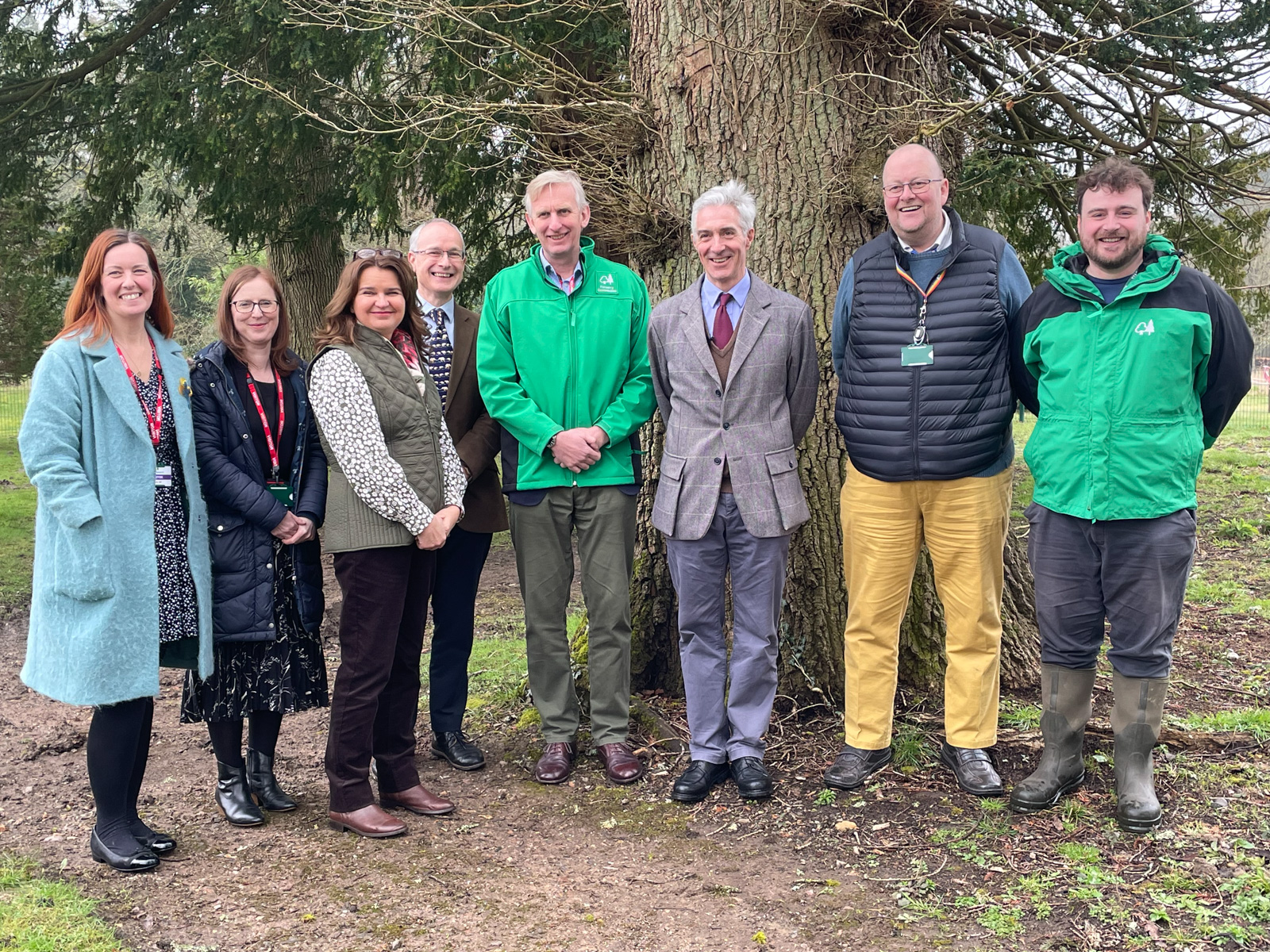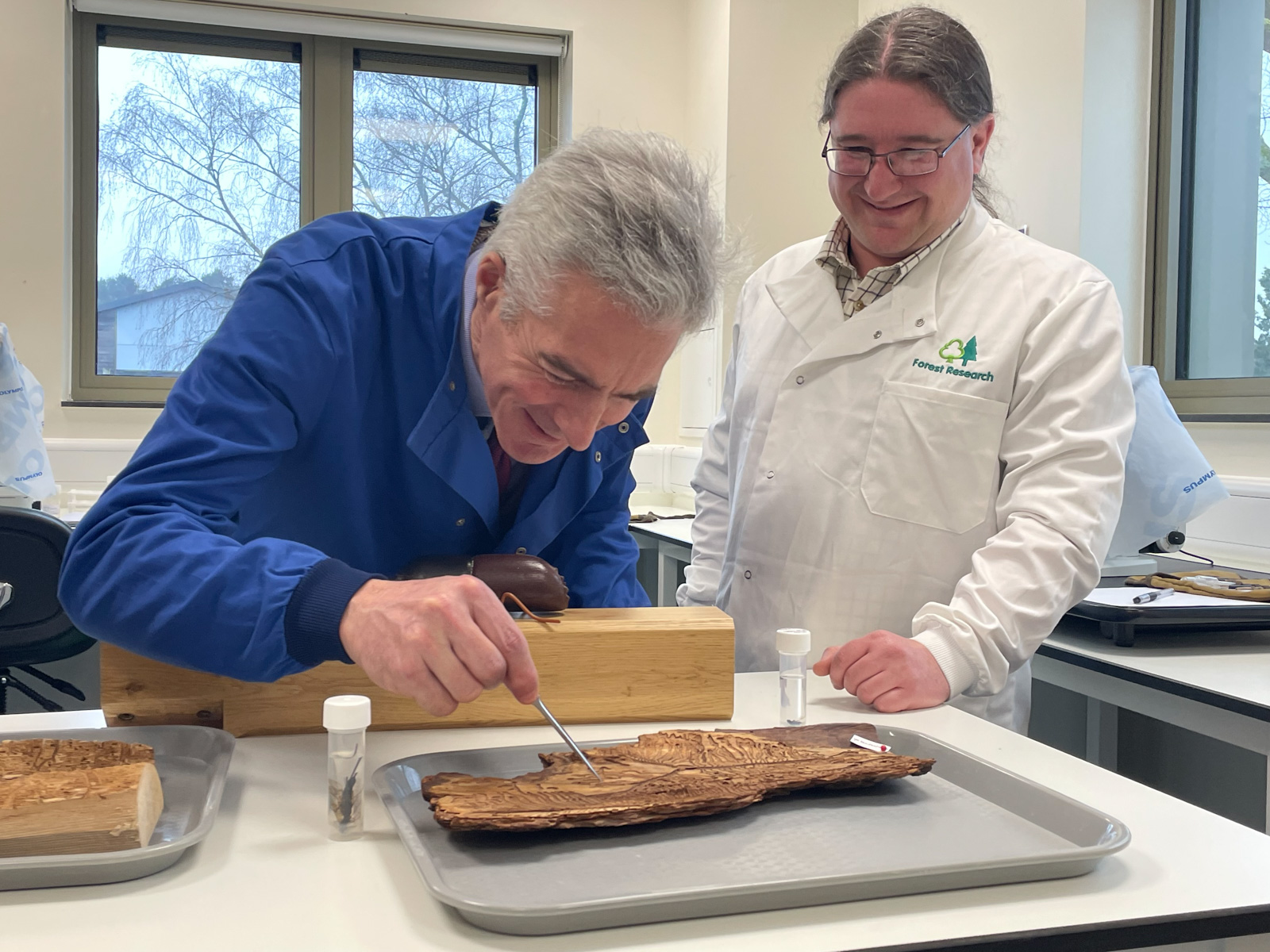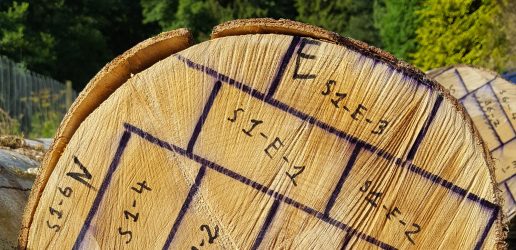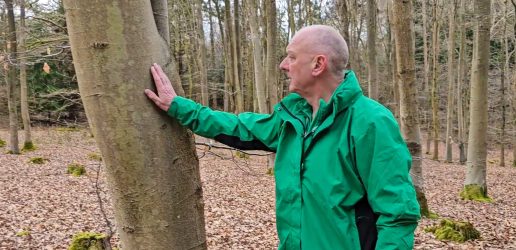 Lord Robbie Douglas-Miller OBE and Defra colleagues meet Richard Stanford, Chief Executive, Forestry Commission, James Pendlebury, Chief Executive, Forest Research, and Gerard Clover, Head of Tree Health, and colleagues at the Alice Holt research station.
Lord Robbie Douglas-Miller OBE and Defra colleagues meet Richard Stanford, Chief Executive, Forestry Commission, James Pendlebury, Chief Executive, Forest Research, and Gerard Clover, Head of Tree Health, and colleagues at the Alice Holt research station.
Lord Douglas-Miller OBE, Parliamentary Under-Secretary of State at Defra and Minister for Biosecurity, Animal Health and Welfare, visited Forest Research’s Alice Holt research station on Monday 11 March 2024 to find out more about our work protecting trees, woodlands and forests from invasive pests and diseases.
Dr Gerard Clover, Forest Research’s Head of Tree Health, gave a brief introduction to our work and how this supports tree health policy and Dr Max Blake, Head of Entomology, briefed Lord Douglas-Miller on our response to Ips typographus, a major threat to conifer forestry, including the diagnostics, surveillance and research we’re undertaking to inform the UK’s response.
 Dr Max Blake, Head of Entomology, shows an Ips typographus breeding gallery to Lord Douglas-Miller OBE
Dr Max Blake, Head of Entomology, shows an Ips typographus breeding gallery to Lord Douglas-Miller OBE
Dr Katy Reed outlined our preparedness for the exotic beetle, Emerald Ash Borer; the beetle is not present in the UK but is spreading westwards from eastern Europe. Pathology response manager, Mick Biddle, highlighted the work being done by Forest Research to develop a biological control for Chestnut blight (Cryphonectria parasitica) and potential management approaches.
Prof James Pendlebury, Forest Research’s Chief Executive, said: “We were delighted to host Lord Douglas-Miller to discuss our research, diagnostic, surveillance and research activities aimed at protecting the nation’s trees and woodlands.
“Our work as part of the UK’s Plant Health service and close collaboration with Defra Plant Health colleagues was highlighted as an excellent example of what can be achieved when people work together across the policy, research and operational delivery boundaries.
The critical role private woodland owners, environmental NGOs, community woodland groups and individuals play as part of our tree health monitoring and response network was also acknowledged.”

Forest Research, in partnership with Edinburgh Napier University, have taken a first step in systematically assessing the timber potential of underutilised species in the UK.
Tree professionals working in arboriculture are being asked to take part in a new tree health survey as part of a DEFRA-funded project looking at pathways and practices concerning the tree disease, canker stain of plane.

Nature, the world’s leading multidisciplinary science journal, has published findings from a new global study investigating which tree species fix the most carbon.

Forest Research, in partnership with Edinburgh Napier University, have taken a first step in systematically assessing the timber potential of underutilised species in the UK.
Tree professionals working in arboriculture are being asked to take part in a new tree health survey as part of a DEFRA-funded project looking at pathways and practices concerning the tree disease, canker stain of plane.

Nature, the world’s leading multidisciplinary science journal, has published findings from a new global study investigating which tree species fix the most carbon.